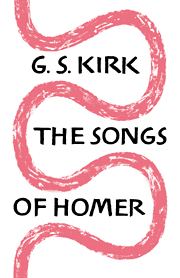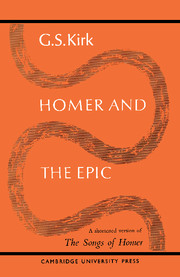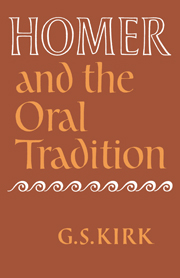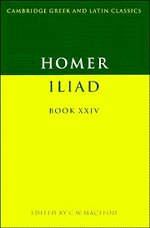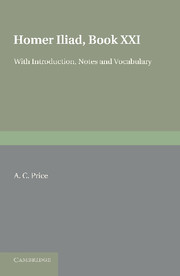The Songs of Homer
The literature of the western world begins with one of its greatest achievements. The stories of the wrath of Achilles and its consequences, and of the wanderings of Odysseus, have been admired from ancient times to the present day. The two great epics can be read and enjoyed, unreflectingly, as tales of adventure; or they can be studied as literature, yielding, as insight and understanding grow, a deeper and more permanent pleasure. Professor Kirk's book is the means to this pleasure. It is a vivid and comprehensive account of the background and development of the Homeric poems and of their quality as literature. The epics are seen primarily as oral poetry, sung for centuries by illiterate singers; and from this view rises discussion of the problems of authorship and transmission. The historical, archaeological and linguistic evidence is also examined; and the possible contributions of the Mycenaean period and of the subsequent Dark Age are shown in a fresh light.
Product details
February 2005Paperback
9780521619189
456 pages
215 × 139 × 30 mm
0.606kg
Available
Table of Contents
- Part I. The Historical Background of the Homeric Poems:
- 1. The rise of Mycenae
- 2. The Linear B tablets and life in a late Mycenaean palace-state
- 3. From the Mycenaean decline to the time of Homer
- Part II. The Oral Poet and his Methods:
- 4. Introductory, §I, Heroic Age and heroic poetry
- §2, The language of formulas in Homer
- §3, The oral tradition and the advent of writing
- §4, The oral poet's use of established themes
- §5, Originality and the formular method
- §6, The comparative study of the oral epic in Yugoslavia
- §7, The life-cycle of an oral tradition
- §8, Oral dictated texts
- Part III. The Growth of the Oral Epic in Greece:
- 5. The evidence for Mycenaean epic
- 6. The poetical possibilities of the Dark Age
- 7. Dark Age elements and Aeolic elements
- Part IV. Plurality and Unity in Homer:
- 8. Subjects and styles
- 9. The cultural and linguistic amalgam
- §1, The archaeological criterion
- §2, The criterion of language
- 10. Structural anomalies in the Iliad
- 11. Structural anomalies in the Odyssey
- 12. The overriding unity
- Part V. The Development and Transmission of the Great Poems:
- 13. The circumstances of Homeric composition
- §1, 'Homer' and his region
- §2, Audiences and occasions
- §3, The date of the poems
- §4, The relationship of the Iliad and Odyssey
- 14. The crucial phases of transmission
- 15. Stages of development
- Part VI. The Songs and their Qualities:
- 16. The Iliad
- 17. The Odyssey
- 18. Man, fate and action: some special qualities of the Homeric poems.

